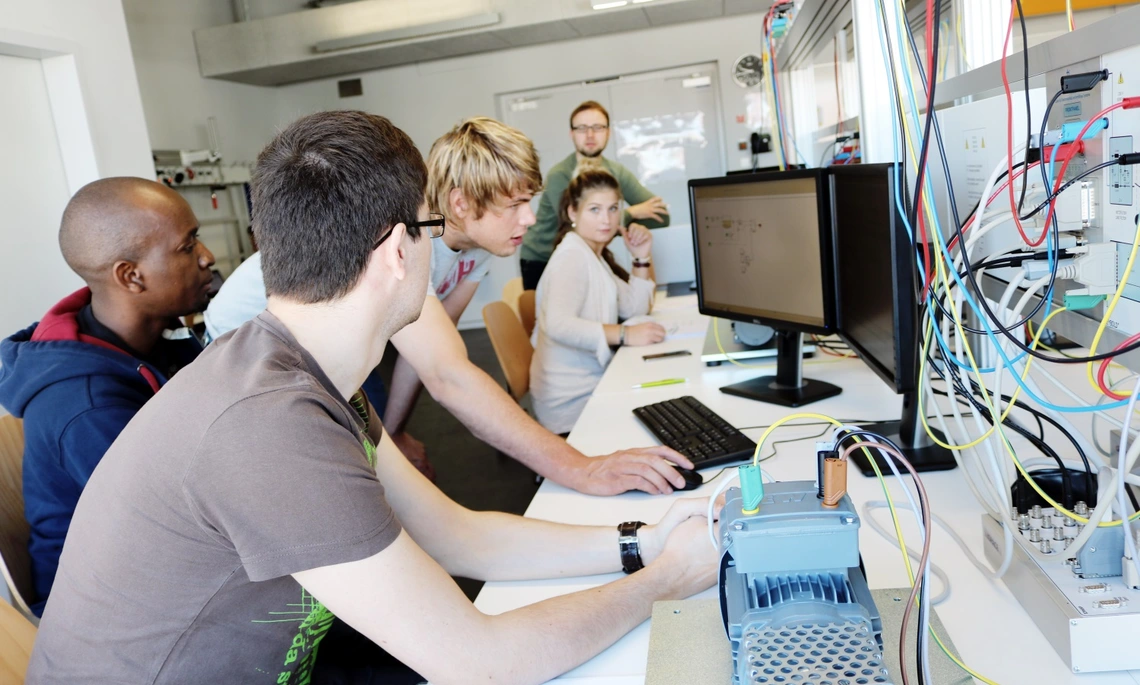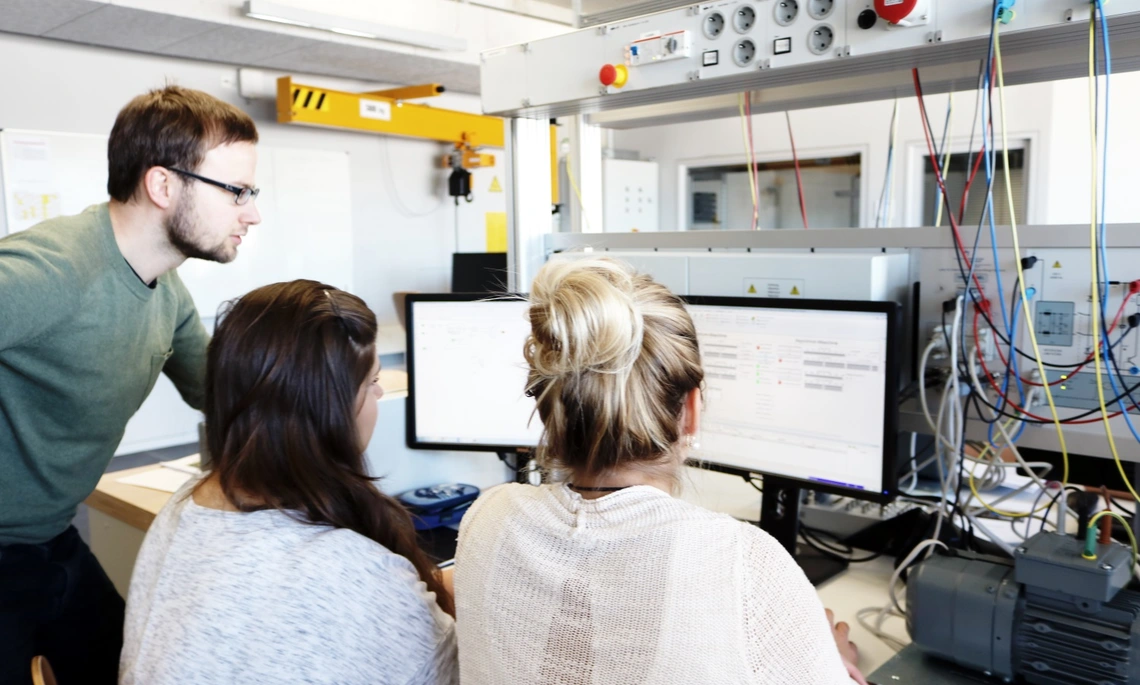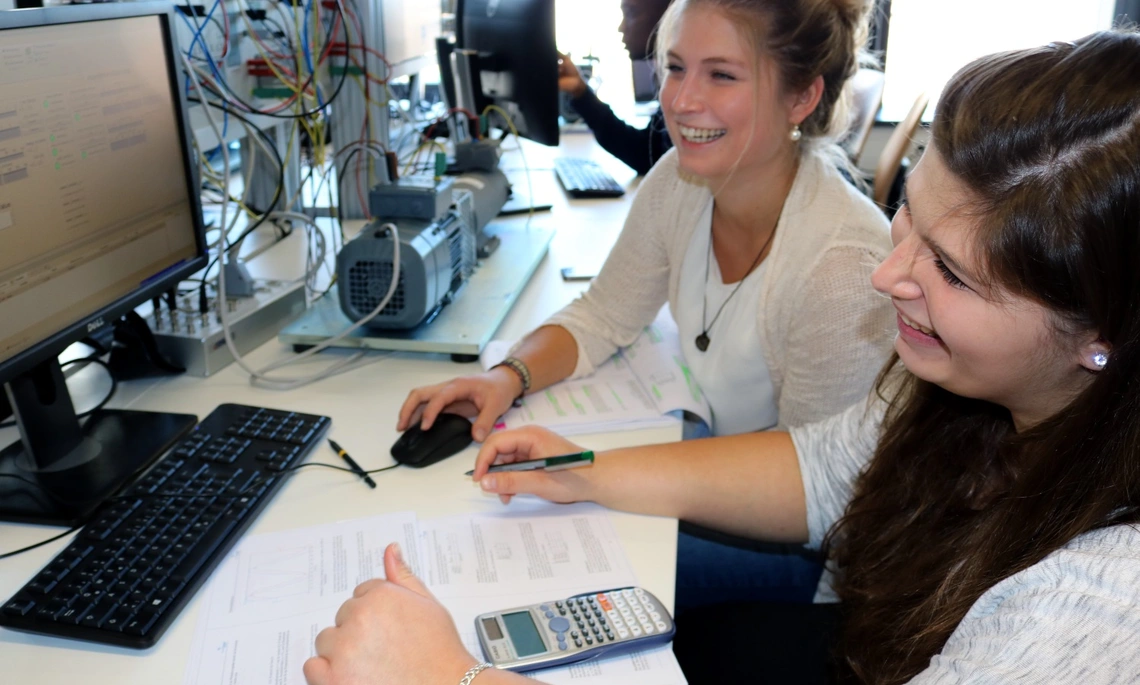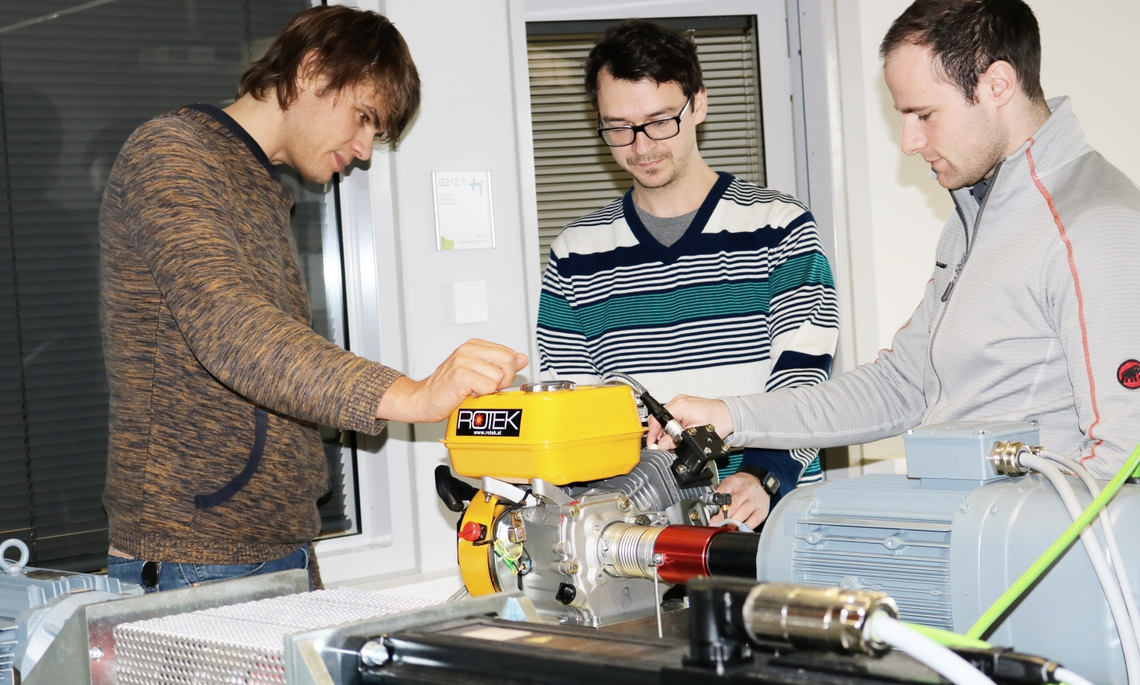The G212 laboratory is concerned with fundamental and current questions regarding electromobility and adaptive systems. The broad term electromobility generally refers to mobility with electric drives, although the degree of electrification may vary.
Goals and idea
The work in the laboratory focuses not only on production and test procedures for the electrified powertrain, but also on the most resource-efficient operation management possible.
Learning-capable systems are understood to be methods that are capable of acquiring knowledge on their own. The increasingly complex applications of our time are characterized by uncertainties, which means that often only suboptimal solutions are possible. Here, the G212 laboratory is concerned with application-driven methods for the development, production and operation of vehicles. Powerful tools from mathematics, computer science and engineering are used.
The G212 laboratory is part of the Faculty of Electrical Engineering and Computer Science and promotes the education of students in the above-mentioned areas of electromobility and adaptive systems. An interesting aspect here is the close interlocking of teaching with application-oriented research. The research groups working in the laboratory belong to the Institute for Innovative Mobility and Resource Efficient Drive Technology (MOREA). The application-oriented research projects are mainly carried out in cooperation with large to medium-sized industrial partners as well as with research institutions and partner universities.
Laboratory equipment and activities
- 4 electric mobility test benches, each equipped with
- Asynchronous three-phase motor
- Direct current machine
- Universal converter
- Braking resistors
- Real-time control system
- Measurement technology
- Oscilloscopes
- Multimeter
- Acceleration sensors
- Torque Sensors
- Current sensors
- Analog and digital measuring cards
- End of Line test setup for electric machines
- End of Line Test Setup for Combustion Engines
- Powerful computers for adaptive systems for different fields of application
- Software for modelling, simulation, control, measurement
Electric mobility
The Electromobility Research Group is working on a very specific application: The focus here is on production and testing processes for electrified units. The team works closely with the Learning Systems Research Group.
- Optimisation of needle winding technology for electric machines
- End-of-line testing of electrical drive units
- Learning systems for the analysis of production data in electric motor manufacturing
- Industry 4.0: With the SmartRobWinder to a highly flexible modular stator production island
Systems capable of learning
Due to increasingly complex applications, often only imprecise models are available. Physical quantities are only roughly known, there is a lack of precise knowledge about a process or one does not know when and where possible errors can occur. This is where the research group supports Learning-Efficient Systems and develops and researches application-driven methods for the development, production and operation of vehicles. Powerful tools from mathematics, computer science and engineering are used.
- Vehicle Parameter Estimation
- System identification of strength test stands
- Predictive operating strategy
- End-of-line testing of combustion engines
- Driving behaviour estimator
Further information under:
www.els-thi.de
Laboratory management and team
Prof. Dr.-Ing. Christian Endisch








![[Translate to English:] Logo Akkreditierungsrat: Systemakkreditiert](/fileadmin/_processed_/2/8/csm_AR-Siegel_Systemakkreditierung_bc4ea3377d.webp)








![[Translate to English:] Logo IHK Ausbildungsbetrieb 2023](/fileadmin/_processed_/6/0/csm_IHK_Ausbildungsbetrieb_digital_2023_6850f47537.webp)


